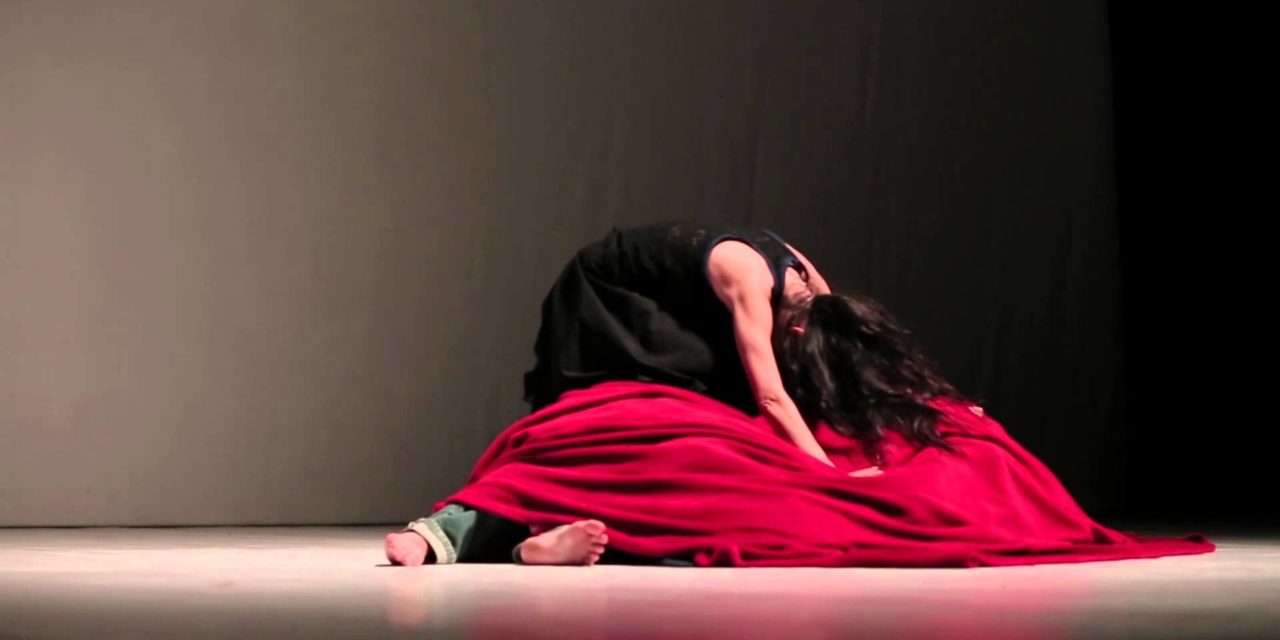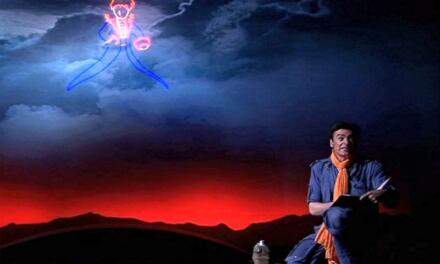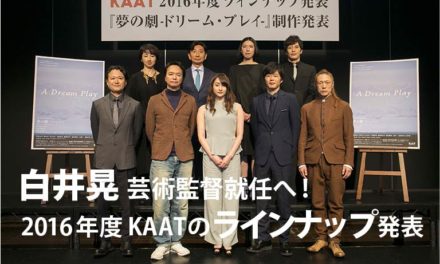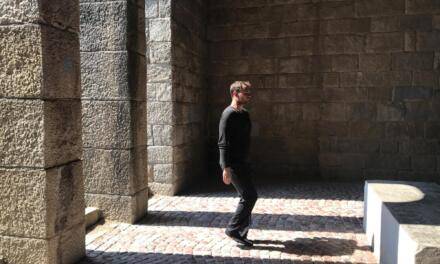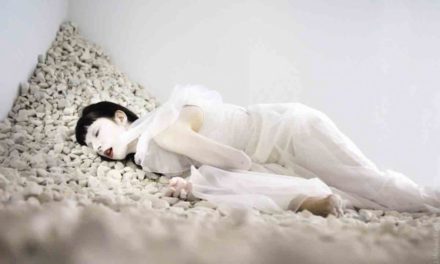In the spring of 2012, TheTheatreTimes.com, along with members of The Fence network, spent a few days (and nights), at the Teatro Valle. It was a brief snapshot of a movement that has now been under ‘occupation’ for three years. In this interview, we reconnect with Tony Allotta and Valeria Colucci, to talk about Teatro Valle’s origins, what’s happening now, and what the future holds.
NITEnews: Please explain the back story, and ultimately how everything started at the Valle? What happened with the previous theatre management? What political/business interests were being put in motion?
Tony Allotta & Valeria Colucci: In May 2010 ETI, the State company depending on the Ministry of Culture in charge of running 4 national theatres (La Pergola in Firenze, Duse in Bologna, Valle and Quirino in Rome), was shut down due to structural budget cuts to culture. Rumors of privatization alarmed the cultural Italian scene. On June 14th, 2011 Teatro Valle was occupied by cultural workers (actors, authors, directors, dancers) for a three-day protest against budget cuts to culture. The temporary occupation had a striking success, the echo was huge, the theatre was filled with people all day and all night long, important artists offered free shows, culture personalities gave public endorsements in support of the protest which, from being temporary, became permanent. Teatro Valle Occupato won the Ubu Special Award for 2011 ((the Italian Academy award for theatre). More prizes were awarded across the three years of occupation.
Nn: How did you all come together? Did you know each other before deciding to stay? How did the protest evolve into an occupation?
TA & VC: In the years before the occupation in Italy there were lots of demonstrations of artist and cultural workers because of all the culture budget cuts. Some of us wrote a document that was read after any shows in Italy to let the audience know how bad the working conditions of cultural workers were; later on, artists and a group of university researchers – who were as well protesting against university budget cuts – joined together, and started a series of blitzes where this document was read to delay the premieres of shows; at that time also an important cinema in the main street in Rome was shut down, and the same group temporarily occupied it (now it is going to be a mall…). During this period, as said before, ETI was dismissed and declared a useless institution; the Ministry of economy also declared that “you don’t eat with culture”. This is the frame where the idea of a strongly symbolic cultural occupation was first born and the first actions that lead to Teatro Valle began.
Nn: What was the infrastructure available in the theatre when you first occupied it? Did you have electricity, water, etc.?
TA & VC: Teatro Valle was occupied just after the last official season had ended, and before being shut for the next: it was thus a normally functioning theatre, only a little bit “aged”. We had water and electricity for the simple reason that, being a historical theatre dating back to 1727, it is a national monument, and water and electricity services could not be cut off for security reasons.
Nevertheless we always used part of the contributions arising from the artistic activity to take care of ordinary maintenance, from basic plumbing to electric maintenance, fire extinguishers updating and the like. We had to rent projectors and all the technical stuff because before the occupation Teatro Valle just hosted productions created in other theaters, so the stage was a sort of empty box.
Nn: How was the process of establishing both a daily routine and a specific theatre practice? How and why did you agree to decide everything by consensus?
TA & VC: Our daily routine was based on sharing tasks: given the availability of everybody to do all the basic things like cleaning, hosting guests and so on, what happened was a natural tendency of everyone to commit on specific tasks, according to everybody’s personal inclination, but always sharing information with the assembly.
We decided to agree by consensus because the occupation itself sprang out of a series of meetings and assemblies, so the democratic discourse had already been part of the process. Consensus is possible where a discourse is open, and where the final aim is to progress in a constructive and not competitive way: it implies that majority doesn’t win on minority, but embraces its contributions where they can better the majority’s decisions and achievement.
Nn: What was the process of programing the shows you presented? Talk a bit about the actual art generated. Please provide a few examples of some of the amazing work performed.
TA & VC: Programming was also a collective activity: it started on the first days with an open stage situation where every artist had 10 minutes to perform freely; it was at that time that Silvia Gallerano first tested an excerpt of The Shit which was then a work in progress; the author Cristian Ceresoli completed the play considering the reaction of the very straightforward audience of Teatro Valle Occupato! In the same period Fausto Paravidino ran a workshop of dramaturgy where 20 people on stage worked in cooperation with the audience downstairs, in a very reach dialogue that transformed the original ideas rehearsed on stage. From this experience the idea of the permanent workshop Crisi was born. Our production Il macello di Giobbe, whose premiere is due in Bruxelles next October 15th, directly comes from there.
Later on programming was based on proposals by artists who wished to perform on the stage of Teatro Valle as a contribution to the fight, but after the 1st year we tried to create with different artists site-specific projects, especially thought for Teatro Valle Occupato; a strong feature of our programming has always been educational and professional training, always open to the audience to let the people know the process behind a creation. The project NaveScuola taught young people the stage crafts directly on site.
The activity of three years of occupation is documented in a paper of more than 200 pages.
Nn: How did the occupation affect the occupants’ lives? What changed in your life because you were a part of this movement? What sacrifices were made, and what were the repercussions?
TA & VC: Full time occupants have been literally giving up their private lives for three years.
Personally, as an artist, I put my career aside, because I think that changing the way we share art is the basis for a cultural renaissance; I actually started to have a double life (working outside Teatro Valle Occupato) to pay the rent.
This also affected the occupants who were normal citizens, who used to come to the theatre every day after their normal job, to restart a daily commitment to theatre activities.
Nn: During the height of the occupation, people from other countries contacted you (and/or visited) to learn from your experience. What have been the results of this initiative in other cities? What other examples of occupied theaters do you know?
TA & VC: International relationships are the core of our activity. We have always been appreciated abroad and have been hosted in a great number of places, both occupied and institutional, and have guested people from all over the world. During our visits abroad we have found much interest in our experience especially on the side of self government experience. This was in fact the main reason why Teatro Valle Occupato was awarded the Princess Margriet Award 2014 by the European Cultural Foundation. We are still taking care of international relationships these days.
Nn: In regards to the legal organization you established, what was it and how did it work? Why did you choose this structure over another model? What are some the strengths and weaknesses of it now that it is in practice?
TA & VC: We wanted to imagine a new kind of institution where conflict issues could meet the vocation to generate new ways of self government, and aspire to new social and legal models. We used the legal frame of a foundation because in Italian law it is a very flexibly regulated entity. We wrote a participating statute where we removed the board of advisors and replaced them with an assembly. We actually wrote what we had been practicing, even though we think this model can be difficult to apply on a larger scale community.
Nn: During your time in the theatre, it appeared that your tech equipment and materials increased in quantity and quality. How did this come to pass? What approaches did you use to improve the conditions in the theatre? How have you generated funds? Does anyone get paid?
TA & VC: During our stay we tried to improve the quality of lighting, sounding and projecting devices because we believe that the work of artists performing at Teatro Valle Occupato deserved high quality standards. We have been renting most of the equipment – safe for a new lighting console, which we bought – or borrowing some of the occupiers’ private equipment. We wished we could have bought a good cinema projector, but we never managed to gather enough money. What must be stressed is that the funds we have been using came for a tiny share from artistic collaborations, and mostly from the contributions of the audience: this has been possible because the occupiers have never been paid for their activity, which was political action before and together with artistic engagement. In the 2 last years we’ve experimented a new economical systems in agreement with guest artists and guest companies that came to play at Teatro Valle, where we shared the incomes and we also gave the 2% directly to the authors of the plays as a copyleft allowance.
Nn: How has your relationship with city hall evolved, and where does it stand right now? How have you been able to stay there so long without their expressed support? Are they pursuing active eviction?
TA & VC: We spontaneously left Teatro Valle on August 11, 2014 after 38 month of occupation. We agreed on leaving the premises to allow the restoration of the building, which is ancient and in need of extraordinary maintenance that we could not take care of. We are currently in dialogue with Teatro di Roma, which is the city national theatre to which Teatro Valle has been entrusted, because – given the recognized innovation of the occupation experience, we will be granted a special project to continue the experimentation at an artistic, social and political level.
Nn: What is the biggest misconception people have about the Valle occupation? Why does it seem to have so many detractors?
TA & VC: The biggest misconception regards the fact that occupants have earned money out of the occupation. On the contrary, occupants have often payed themselves things that were necessary for the common use, and refused job offers to follow the process enacted at Teatro Valle.
Another misconception is that the occupants wanted to run Teatro Valle forever, while our participated statute is the clear proof that this was not our aim.
Nn: What does the future hold for the occupation?
TA & VC: The occupation is over. Last year it gave birth to a Commons Foundation, a new kind of institution where participation and self-government are the main principles, whose public recognition by the city and the national institutions is our next aim. We will continue to experiment new ways to put arts at the core of relationships between people.
Tony Allotta: I am an actor, director and theatrical teacher and an activist artist in Teatro Valle Occupato in Rome where I am involved in differents projects about education (Tanz Zeit). I was born in Rome, where I also began my education at La Sapienza University and the National Theatrical School directed by Gigi Proietti. I played in many productions by Chechov, Feydeau, Euripides, Cerami, Goldoni, Noren, Yourcenar, Shakespeare, Pirandello, Pasolini and Boccaccio. I produced 2 monologues :”Lettere Rubate – Cercando Fernando Pessoa” (Stolen Letters- Looking for Fernando Pessoa), a sort of investigastion around the misterious portugues poet. My last self-production is “La vita davanti” (The Life Ahead) a monologue based on Romain Gary’s novel. I am co-creator of the performance “Tutto il nostro folle amore” (All our mad love) by Teatro Valle Occupato, an artistic investigation about love in the time of crisi
Valeria Colucci: One of the non-artists bunch of occupants, Valeria studied law and philosophy, works as a legal officer in the outside world, and the rest of the time takes care of the unfunny part of being in a theatre collective. Sometimes she has an artistic word, though. She thinks the statute of Teatro Valle Commons Foundation is the finest piece of law ever written after the Constitution of the Roman Republic of 1849.
This post was written by the author in their personal capacity.The opinions expressed in this article are the author’s own and do not reflect the view of The Theatre Times, their staff or collaborators.
This post was written by The Theatre Times.
The views expressed here belong to the author and do not necessarily reflect our views and opinions.

